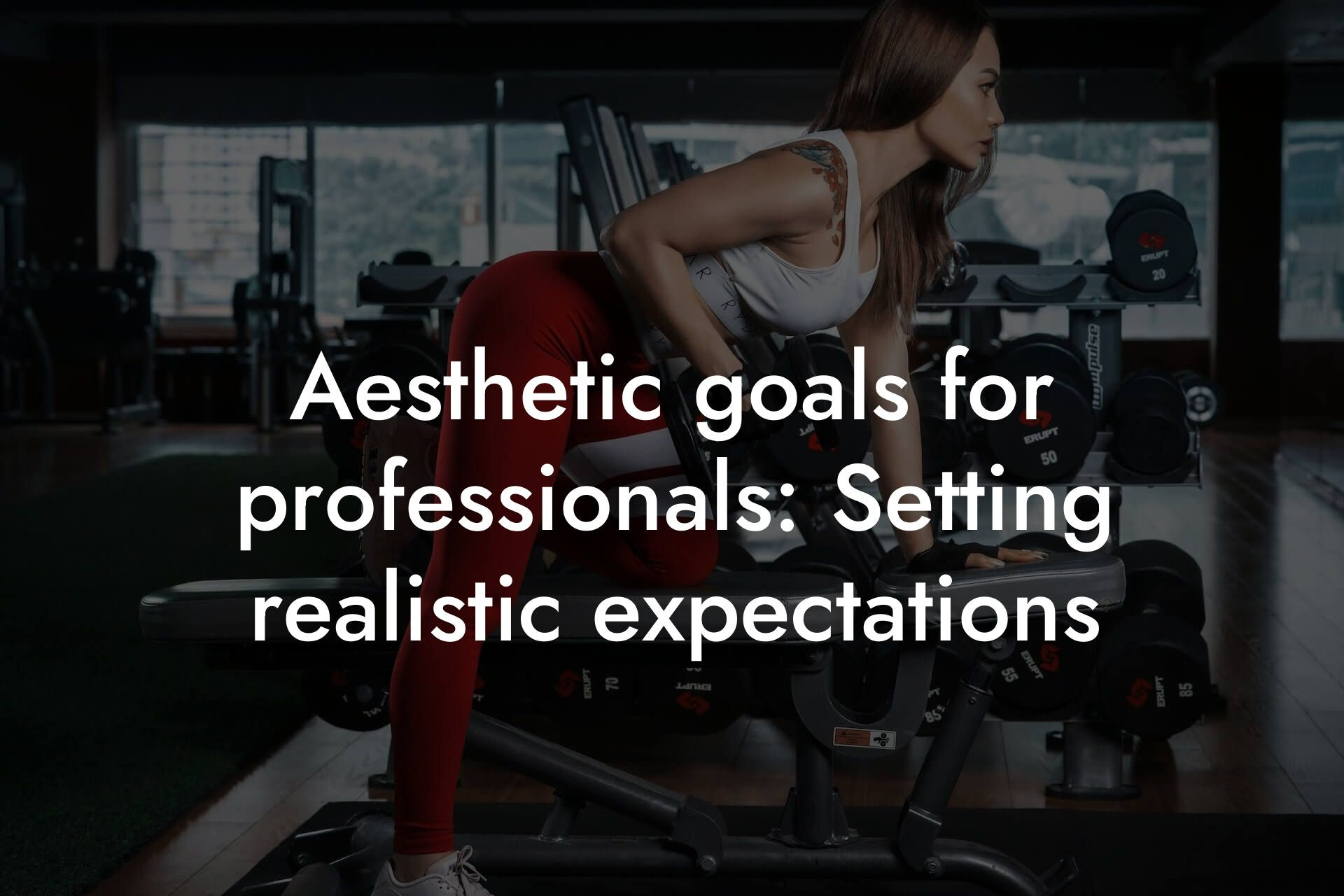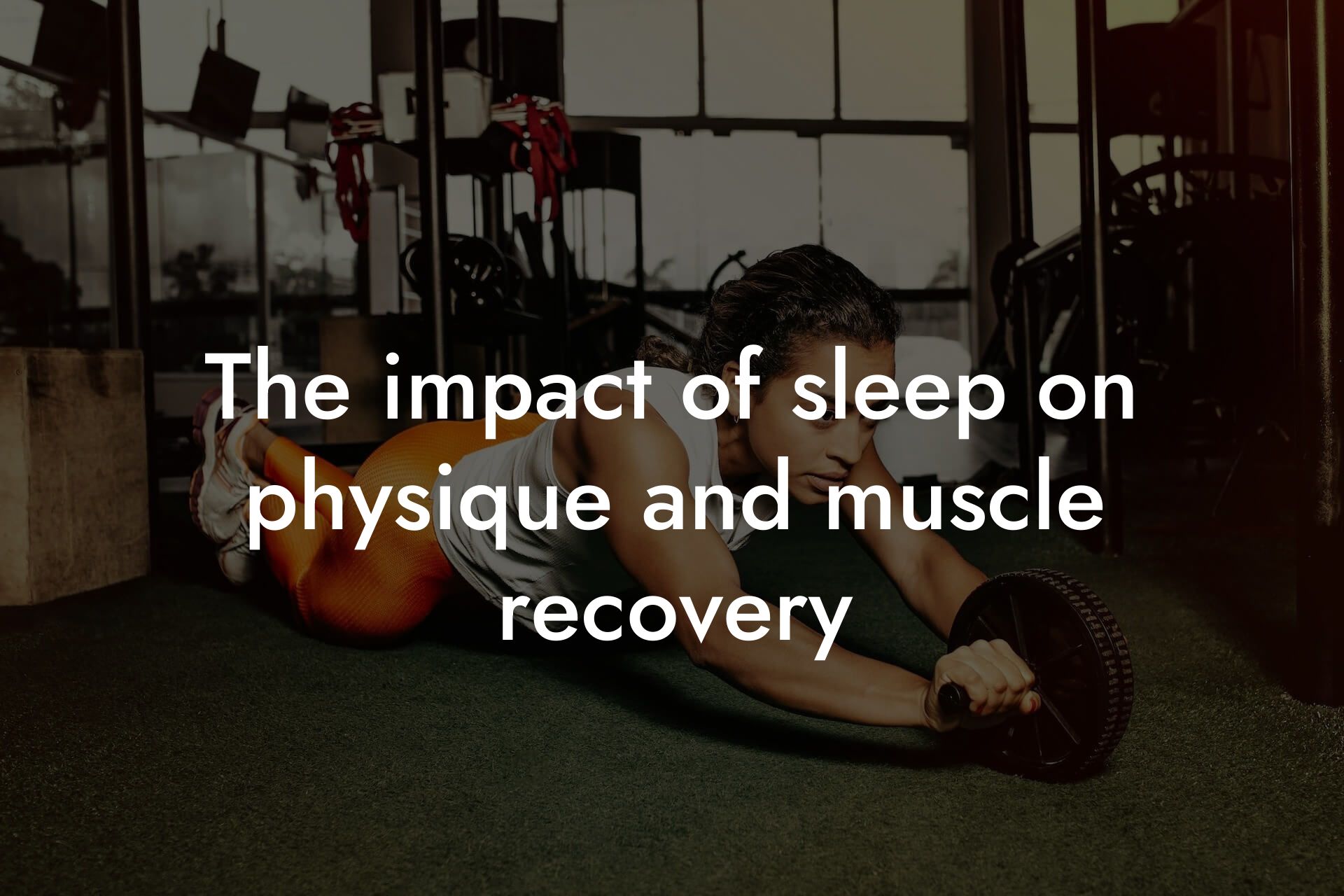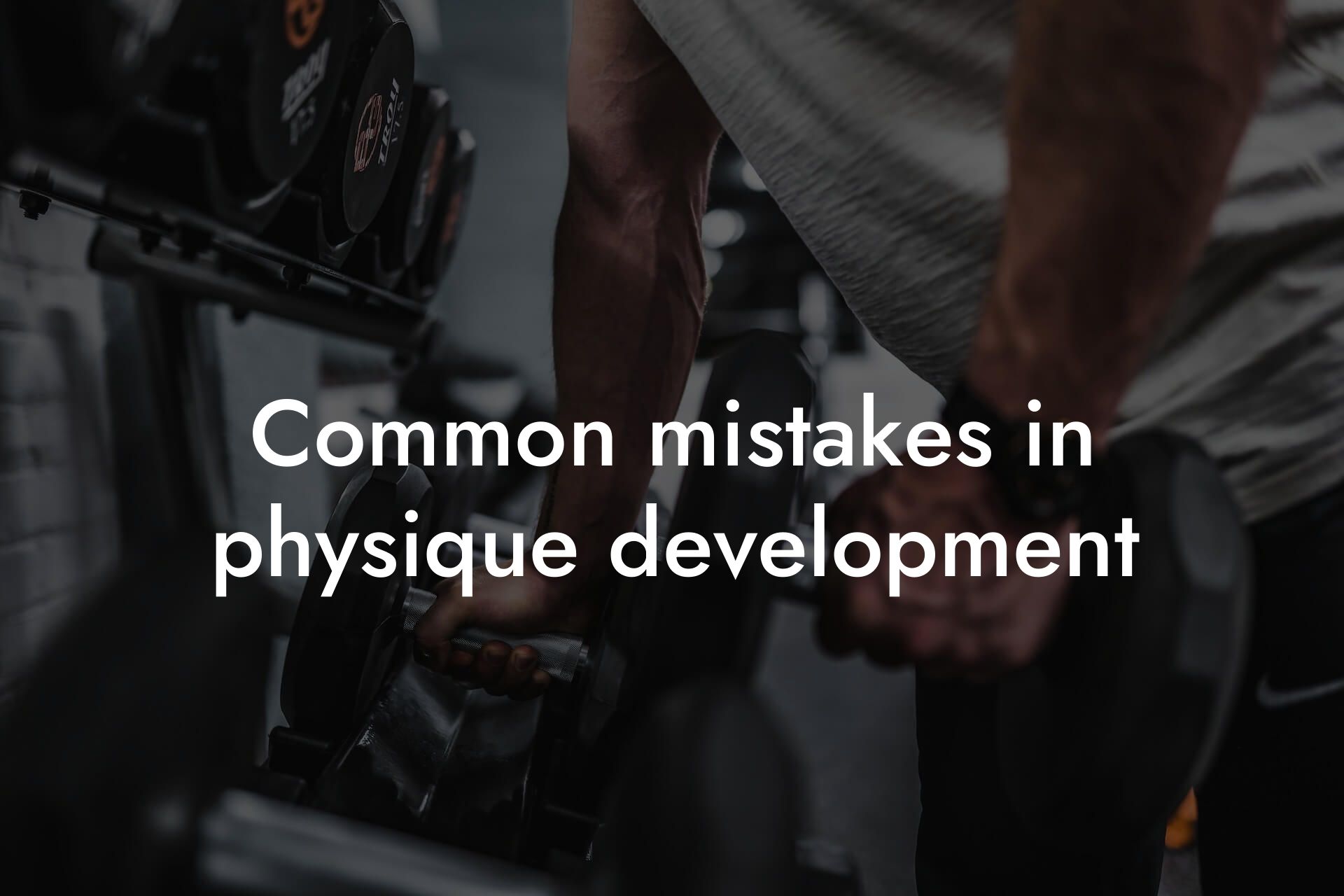Understanding the Importance of Physical Health for High-Earning Professionals
As a high-earning professional, you understand the importance of presenting yourself confidently and professionally. A well-maintained physique not only boosts your self-esteem but also sends a message to your clients, colleagues, and competitors that you're a force to be reckoned with. However, with demanding work schedules and endless meetings, it can be challenging to prioritize your physical health. At Tano Performance Group, we believe that a professional physique is not just a vanity metric, but a key component of achieving success in your career.
Table of Contents
- Understanding the Importance of Physical Health for High-Earning Professionals
- Setting Realistic Goals and Expectations
- Assessing Your Current Physique
- Creating a Balanced Diet for a Professional Physique
- Incorporating Effective Exercise Routines into Your Schedule
- Managing Stress and Sleep for Optimal Physique
- Tracking Progress and Staying Motivated
- Sustaining a Professional Physique for Long-Term Success
- Frequently Asked Questions
Setting Realistic Goals and Expectations
Before embarking on your fitness journey, it's essential to set realistic goals and expectations. As a busy professional, you may not have the luxury of spending hours at the gym every day. Instead, focus on making sustainable lifestyle changes that can be incorporated into your busy schedule. Identify your motivations, whether it's to improve your overall health, increase energy levels, or enhance your physical appearance. Having a clear understanding of what you want to achieve will help you stay focused and motivated.
Assessing Your Current Physique
At Tano Performance Group, we use advanced DEXA technology to provide a comprehensive body assessment. This non-invasive, 10-minute scan provides a detailed breakdown of your body composition, including body fat percentage, lean muscle mass, and bone density. This information is crucial in understanding your current physique and creating a personalized plan to achieve your goals. By identifying areas of improvement, you can focus on making targeted changes to your diet and exercise routine.
Creating a Balanced Diet for a Professional Physique
A well-structured diet is the foundation of building a professional physique. As a busy professional, it can be tempting to rely on convenience foods and takeout, but these habits can hinder your progress. Focus on consuming whole, nutrient-dense foods, including lean proteins, complex carbohydrates, and healthy fats. Aim to eat at least five servings of fruits and vegetables daily, and limit your intake of processed foods and sugary drinks. Additionally, consider meal prepping and planning to ensure you're fueling your body with the right foods, even on the busiest of days.
Incorporating Effective Exercise Routines into Your Schedule
As a busy professional, it can be challenging to find time to exercise. However, incorporating physical activity into your daily routine is crucial for building a professional physique. Aim to exercise at least three times a week, with a focus on resistance training and high-intensity interval training (HIIT). These types of exercises are effective in burning fat, building lean muscle, and improving overall cardiovascular health. Consider working with a personal trainer or fitness coach to create a customized exercise plan that fits your schedule and goals.
Managing Stress and Sleep for Optimal Physique
Chronic stress and poor sleep can have a significant impact on your physique, leading to increased body fat, decreased muscle mass, and a weakened immune system. As a busy professional, it's essential to prioritize stress management and sleep. Engage in stress-reducing activities, such as meditation, yoga, or deep breathing exercises, and aim for 7-9 hours of sleep each night. By managing stress and sleep, you'll be better equipped to handle the demands of your job and maintain a professional physique.
Tracking Progress and Staying Motivated
Tracking your progress is crucial in staying motivated and achieving your goals. At Tano Performance Group, we recommend regular DEXA scans to monitor changes in your body composition. Additionally, consider tracking your progress through progress photos, measurements, and weight. Celebrate your successes, no matter how small, and don't be too hard on yourself when you encounter setbacks. Staying motivated and focused will help you maintain a professional physique and achieve long-term success.
Sustaining a Professional Physique for Long-Term Success
Building a professional physique takes time, effort, and dedication. However, sustaining it requires a long-term commitment to healthy habits and lifestyle changes. By incorporating healthy habits into your daily routine, you'll be better equipped to maintain a professional physique, even in the face of challenging work schedules and demanding deadlines. Remember, a professional physique is not a one-time achievement, but a continuous process of self-improvement and dedication.
Building a professional physique is within reach, even for the busiest of professionals. By setting realistic goals, assessing your current physique, creating a balanced diet, incorporating effective exercise routines, managing stress and sleep, tracking progress, and sustaining healthy habits, you'll be well on your way to achieving a physique that exudes confidence and professionalism. At Tano Performance Group, we're committed to helping high-earning professionals like you achieve their goals and take their careers to the next level. Contact us today to learn more about our comprehensive body assessment and personalized coaching services.
Frequently Asked Questions
What is the ideal body fat percentage for a professional physique?
For men, an ideal body fat percentage for a professional physique is typically between 8-12%. For women, it's between 16-20%. However, this can vary depending on individual goals and preferences. It's essential to remember that body fat percentage is just one aspect of overall physique development.
How do I measure my body fat percentage?
There are several ways to measure body fat percentage, including dual-energy X-ray absorptiometry (DXA), hydrostatic weighing, and skinfold measurements. You can also use a body fat caliper, which is a simple and cost-effective method. Consult with a healthcare professional or certified fitness expert to determine the best method for you.
What is the importance of bone density in physique development?
Bone density is crucial for overall health and physique development. As we age, our bone density naturally decreases, which can lead to osteoporosis and increased risk of fractures. Resistance training and proper nutrition can help improve bone density, leading to a stronger, more resilient physique.
How do I incorporate strength training into my busy schedule?
As a busy professional, it can be challenging to find time for strength training. However, even 20-30 minutes of resistance exercises, 2-3 times a week, can be beneficial. Consider waking up earlier, taking a lunch break workout, or incorporating bodyweight exercises into your daily routine.
What are the best exercises for building a professional physique?
The best exercises for building a professional physique include compound exercises such as squats, deadlifts, bench press, and rows. These exercises work multiple muscle groups simultaneously, helping to build overall muscle mass and strength. Incorporate a mix of upper and lower body exercises to achieve a balanced physique.
How often should I workout to see results?
The frequency of workouts depends on individual goals and current fitness level. As a general rule, aim to exercise 3-4 times a week, with at least one day of rest in between. This allows for adequate recovery time and can help prevent plateaus and injury.
What is the importance of nutrition in physique development?
Nutrition plays a critical role in physique development, accounting for approximately 70-80% of results. Focus on consuming a balanced diet rich in protein, complex carbohydrates, and healthy fats. Aim to eat 1-1.5 grams of protein per kilogram of body weight daily to support muscle growth and repair.
How do I calculate my daily caloric needs?
To calculate your daily caloric needs, consider your age, weight, height, and activity level. A general rule of thumb is to multiply your body weight in kilograms by 2.2-2.5 for maintenance calories. Then, adjust based on your specific goals, such as weight loss or muscle gain.
What are the best sources of protein for physique development?
The best sources of protein for physique development include lean meats like chicken, turkey, and fish, as well as plant-based options like beans, lentils, and tofu. Additionally, consider supplementing with whey protein or casein protein to support muscle growth and recovery.
How do I stay motivated and consistent with my workout routine?
Staying motivated and consistent requires setting clear goals, tracking progress, and finding a workout buddy or accountability partner. Celebrate small victories along the way, and don't be too hard on yourself if you miss a workout. Instead, focus on getting back on track and making progress towards your goals.
Can I still build a professional physique if I have a desk job?
Absolutely! Having a desk job doesn't mean you can't build a professional physique. Incorporate exercises that target your core and legs, such as squats and lunges, to counteract the negative effects of sitting. Additionally, take regular breaks to stretch and move throughout the day.
How do I balance my work and social life with my fitness goals?
Balance is key! Prioritize your fitness goals by scheduling workouts into your daily planner or calendar. Communicate with friends and family about your goals and commitments, and find ways to incorporate them into your fitness journey, such as working out together or sharing healthy meals.
What are the benefits of working with a personal trainer or fitness coach?
Working with a personal trainer or fitness coach can provide accountability, customized workout plans, and expert guidance. They can help you overcome plateaus, correct form and technique, and stay motivated and focused on your goals.
How do I track my progress and measure results?
Track your progress by taking regular measurements, progress photos, and monitoring your workout logs. Use a food diary or mobile app to track your nutrition, and consider working with a fitness coach or using a body fat caliper to measure body fat percentage.
What are the most common mistakes people make when trying to build a professional physique?
Common mistakes include lack of consistency, inadequate nutrition, and poor form and technique. Additionally, many individuals focus too much on aesthetics rather than overall health and wellness, leading to burnout and disappointment.
How do I stay injury-free while working out?
To stay injury-free, warm up properly before each workout, cool down afterwards, and incorporate stretching and foam rolling into your routine. Listen to your body and take rest days as needed, and consult with a healthcare professional or certified fitness expert if you experience any pain or discomfort.
Can I build a professional physique at home without a gym membership?
Absolutely! You can build a professional physique at home using bodyweight exercises, resistance bands, or investing in a few key pieces of equipment like dumbbells and a pull-up bar. Get creative and find ways to challenge yourself without relying on a gym membership.
How do I deal with setbacks and plateaus in my fitness journey?
Setbacks and plateaus are a normal part of any fitness journey. Stay patient, focus on progress rather than perfection, and make adjustments to your workout routine and nutrition plan as needed. Celebrate small victories and don't give up – every step forward is a step in the right direction.
What is the role of rest and recovery in physique development?
Rest and recovery are crucial for physique development, as they allow your muscles to repair and rebuild. Aim for 7-9 hours of sleep per night and take rest days as needed. Additionally, incorporate stretching, foam rolling, and self-myofascial release into your routine to aid in recovery.
How do I make healthy nutrition choices when eating out or traveling?
When eating out or traveling, make healthy choices by opting for grilled or baked options, avoiding processed foods, and incorporating plenty of fruits and vegetables. Research healthy restaurants and meal prep options in advance, and consider packing healthy snacks to keep you fueled on-the-go.
What is the importance of mental preparation and mindset in physique development?
Mental preparation and mindset play a critical role in physique development. Focus on building a positive and resilient mindset, set realistic goals, and celebrate small victories along the way. Believe in yourself and your abilities, and don't be afraid to ask for help or support when needed.
How do I maintain my physique over the long-term?
To maintain your physique over the long-term, focus on making sustainable lifestyle changes rather than quick fixes. Set realistic goals, stay consistent with your workout routine and nutrition plan, and continue to challenge yourself and make progress towards your goals.
Here are some related articles you might love...
- Aesthetic goals for professionals: Setting realistic expectations
- The impact of sleep on physique and muscle recovery
- Common mistakes in physique development
- Top workouts to enhance your physique
- The role of genetics in physique development
- Muscle toning vs building: What’s the difference?
- How your physique impacts your confidence and career
- Best supplements for improving physique
- How to maintain a lean physique year-round
Zak Faulkner
Zak Faulkner is a leading authority in the realm of physical health and body composition analysis, with over 15 years of experience helping professionals optimise their fitness and well-being. As one the experts behind Tano Performance Group, Zak has dedicated his career to providing in-depth, science-backed insights that empower clients to elevate their physical performance and overall health.
With extensive knowledge of DEXA technology, Zak specializes in delivering comprehensive body assessments that offer precise data on body fat, muscle mass, bone density, and overall physique. His expertise enables individuals to make informed decisions and achieve their fitness goals with accuracy and confidence. Zak’s approach is rooted in a deep understanding of human physiology, combined with a passion for helping clients unlock their full potential through personalised strategies.
Over the years, Zak has earned a reputation for his commitment to excellence, precision, and client-focused service. His guidance is trusted by top professionals who demand the best when it comes to their health. Whether advising on fitness programs, nutritional strategies, or long-term wellness plans, Zak Faulkner’s insights are a valuable resource for anyone serious about taking their health and fitness to the next level.
At Tano Performance Group, Zak continues to lead our Content Team revolutionising how professionals approach their physical health, offering unparalleled expertise that drives real results.




